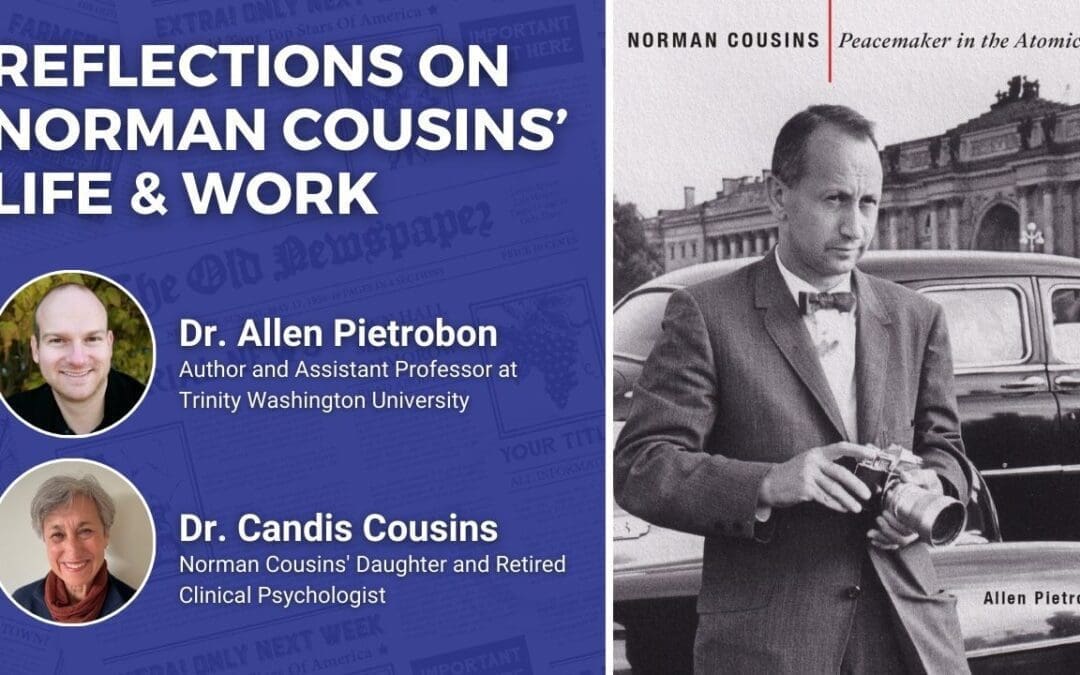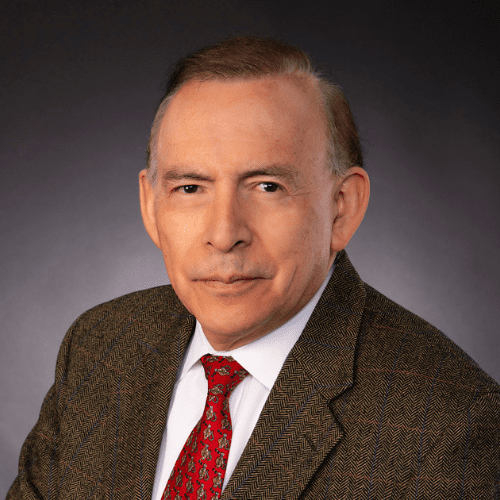
Lessons in Effective Peace Activism: Reflections on Norman Cousins’ Life
Dr. Allen Pietrobon and special guest, Candis Cousins, to reflect on Norman Cousins’ life devoted to #peace activism and world federation perspectives. How can we as Americans and world citizens follow in his footsteps and carry on his life’s work to make the world a more peaceful place Norman Cousins was the editor of the Saturday Review for more than thirty years and had a powerful platform from which to help shape American public debate during the height of the Cold War. Under Cousins’ leadership, the magazine was considered one of the most influential in the literary world.
Cousins’ progressive, nonpartisan editorials in the Review earned him the respect of the public and US government officials. But his deep impact on postwar international humanitarian aid, anti-nuclear advocacy, and Cold War diplomacy has been largely unexplored. Starting in 1945, Cousins mobilized powerful efforts to support victims of the atomic bombing of Japan and of Nazi `medical experiments,’ to foster world federation, to halt nuclear weapons testing and abolish nuclear weapons, to build a mass peace movement in the United States (as founder and co-chair of the National Committee for a Sane Nuclear Policy), and to end the Vietnam War. At the height of the Cold War, he played a central role in securing the world’s first nuclear arms control agreement (the test ban treaty of 1963) and in securing U.S.-Soviet detente.
Dr. Allen Pietrobon, author of Norman Cousins: Peacemaker in the Atomic Age is an Assistant Professor of Global Affairs at Trinity Washington University and Chair of the Global Affairs Department. Special guest, Candis Cousins, daughter of Norman Cousins, will spotlight how Norman got involved in the peace movement and how Americans can carry his work forward.
Dr. Candis Cousins was involved in the civil rights movement in the South during her years at Oberlin College. After attending Bank Street School, she taught first grade in an all-Black school in Georgia before returning North to begin her training in psychotherapy and learning disabilities. After receiving her Ph.D in clinical psychology, she had a private practice for 33 years. Now retired, she teaches studio art and a course in perception and creativity. She lives in Oakland, California with her husband, son and daughter-in-law.


























